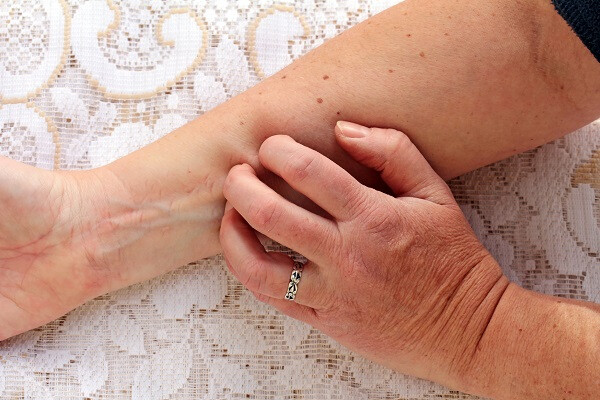
Itching is an unpleasant sensation that triggers the urge to scratch. It is often caused by substances or inflammation that irritate the skin.
It is well known that scratching the skin in response to irritation worsens inflammation at the site of the wound. Yet, many people cannot resist the urge to scratch an itch. Why is this?
The most classic explanation is that it is an act of removing irritants or insects. Another is that it provides a temporary relief from the itch at the irritated area.
Scientists have discovered a clue to the hidden inflammatory response system in that cool feeling. They found that scratching has a dual function: it can worsen inflammation, but it can also protect the skin from further infection.
According to a study published in the international journal Science, researchers at the University of Pittsburgh found that scratching induces an antibacterial effect in mice.
The researchers divided mice that had allergens applied to their ears to induce itching into three groups. The first group was allowed to scratch the itchy area as they pleased, the second group was prevented from scratching by wearing a cone around their necks, and the third group had the neurons that sense itching removed. The researchers applied allergens to these mice and observed the changes that occurred in their skin.
The results showed that the ears of the mice that were allowed to scratch were swollen and filled with inflammatory immune cells called neutrophils. On the other hand, the mice that were not allowed to scratch had much less swelling and inflammation. The same was true for the mice that had no itch-sensing neurons. This means that scratching worsened the skin condition.
The researchers then discovered that scratching releases a compound called P from the pain-sensing neurons, which in turn activates white blood cells called mast cells. Mast cells, which are abundant in the dermis, are a type of immune cell that attracts other immune cells called neutrophils, which cause itching and inflammation.
The researchers explained, "In the case of contact dermatitis, scratching an itchy area can lead to more inflammation due to the 'direct pathway' in which mast cells are activated by allergens, and the 'indirect pathway' in which mast cells are activated by a substance called P."
Reduces Staphylococcus aureus levels
The researchers also discovered another role of mast cells. Activated mast cells reduced the levels of Staphylococcus aureus, a bacteria involved in skin infections in mice. Staphylococcus aureus is a bacteria that causes skin inflammation.
"The fact that scratching increases the defense against Staphylococcus aureus suggests that scratching may be beneficial," the researchers said. This is related to the researchers' motivation for this study.
This study began with the question of why the 'itch-scratching behavior' naturally occurs in humans and many other animals, even though scratching worsens inflammation. The reduction in Staphylococcus aureus levels partially resolved this question.
However, the researchers emphasized that in chronic itching, the harm of worsening inflammation from scratching outweighs the benefits of reducing Staphylococcus aureus.
Based on the results of this study, the researchers are developing a treatment that targets mast cell receptors to suppress skin inflammation.
[Copyright (c) Global Economic Times. All Rights Reserved.]






























